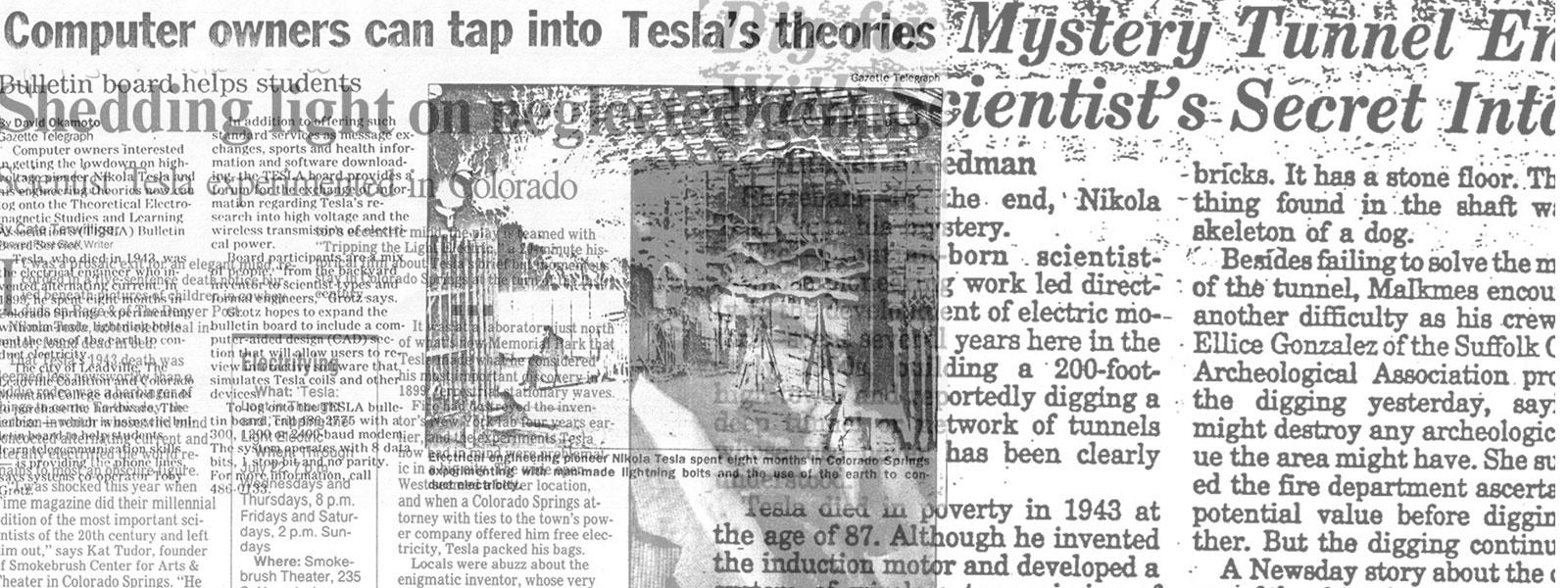
Nikola Tesla Articles
Nikola Tesla - Master of Electrical Energy Page 5
73 Magazine - February 1st, 1969
had been wired by men who were less than adept at their job and when the master switch was thrown to activate the new lighting system, a short circuit blew out one wall, showering bricks and debris on the dignitaries. The Germans understandably would not accept the plant in its present condition and Tesla was dispatched to the rescue.
He soon put matters right, even in the face of German bureaucratic bungling. He writes of the "efficiency" of a simple matter of placing a hall light, in which the whole chain of command had to be consulted before the light could be installed at the very spot Tesla had suggested to begin with. When he was not taking time in matters of this sort, however, he was free to work on his own. He had brought some materials with him, and rented the facilities of a machine shop near the railroad station for evening work. There he built his first induction motor. Because he could visualize the final design so accurately, he did not need blueprints. He was a fussy worker, however, and the precise machining and polishing of the parts took time. The individual parts did not need cut-and-fit partial assembly but went together into a finished product the first time.
It was a dramatic moment. Tesla had thought the idea through in his mind, but it was new, it had never been tried before. Perhaps he had deluded himself, maybe it was only wishful thinking. He could only find out one way-he threw the switch. The motor hummed, the armature turned. Almost instantly, it had built up full speed. Tesla threw the reversing switch. The armature stopped, began to revolve in the opposite direction. It was clearly a success.
Tesla had made many friends in Strasbourg, impressed many people because of his efficiency and knowledge. Now he went to the mayor and various businessmen. Perhaps the sight of a working model would suffice where words had failed. But it was the same. No one seemed interested in what was the most significant commercial development in electrical engineering.
The despairing inventor returned to Paris, where another disappointment awaited him. He had been promised a substantial bonus on successful completion of the Strasbourg project. He had delivered. Now the managers of the works sent him on a wild-goose chase. The treasurer would pay him, only the treasurer said he did not have the authority to issue a draft; the operations manager understood, but he had not authorized the trip, etc., etc. Tesla gave his resignation in disgust.
Charles Batchelor, one of the company administrators who had been friendly toward Tesla advised him that he would have a better chance of achieving success in America. Batchelor was a close personal friend of Thomas Edison and gave Tesla a letter of introduction.
Once the idea was in Tesla's mind, it didn't take long for him to settle his affairs. He sold his possessions and books and bought a steamship ticket. On the way to the station where he would catch a train for the seaport, he was robbed. He managed to get to the docks but the steamship officials would not let him board without a ticket. He persuaded them that if no one showed up before departure to claim the reservation that they should accept his story as true. He arrived in America with four cents in his pockets, a book of his own poems, a couple of technical articles, some notes on a mathematical problem and on the design of a flying machine-and a wealth of inventive genius in his mind.
He presented himself to electrical wizard Edison quickly and angered the great man immediately by telling him of his alternating-current system. Yet Edison was quick to recognize the ability of the young immigrant and impressed by the letter Batchellor had written. Never one to ignore the knock of opportunity, Edison hired the well-educated and experienced engineer for eighteen dollars a week-hardly more than he paid the average mechanic in the shops.
Tesla was impressed on their initial meeting by Edison's forceful personality and recognized that the practical man had done quite a lot with no formal training. He wondered if his own educational process had been a waste of time. He was quick to learn, however, that it had not. Edison firmly believed in the trial-and-error approach to all things and much later Tesla wrote that "a little theory and calculation would have saved him ninety percent of his labour."
Tesla was initially assigned minor routine work but when he showed his talent and his dedication by working eighteen hours
